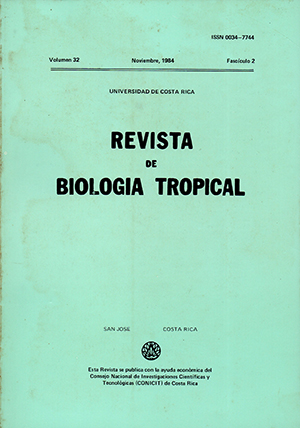Abstract
Rotaviruses and Campylobacter fetus jejuni are ubiquitous agents of diarrheal disease in animals and humans. Under natural conditions they do not seem to cross inter-species barriers; a zoonosis has not been documented for man. However, animal rotaviruses might contribute to the emergence of new reassortment strains in view of their segmented genome, and thus, produce new antigenic variants. 00 the contrary, Campylobacter fetus jejuni produces a true zoonosis. Man acquires bacilli by ingesting water and foodstuffs contaminated with feces from infected animals. In an outbreak of diarrhea in 22 calves, rotavirus was detected in 8 (36%) and Campylobacter in 6 (27%). Three (14 %) calves experienced double infection. There were no human cases involved in this outbreak.References
Butzler, J. P., & M. B. Skirrow. 1979. Campylobacter enteritis. Clinics Gastroenterol., 8: 737-765.
DuPont, H. L., & L. K. Pickering. 1980. Infections of the gastrointestinal tract. Microbiology, pathophysiology and clinical features. Plenum Medical Books Co., 273 p.
Greenberg, H. B., A. R. Kalica, R. G. Wyatt. R. W. Jones. A. Z. Kapikian, & R. M. Chanock. 1981. Rescue of non-cultivatable human rota virus by gene reassortment during mixed infection with ts mutants of a cultivatable bovine rotavitus. Proc. Nat. Acad. Sci. U.S.A., 78: 420-424.
Kapikian, A. Z., R. H. Yolken, H. B. Greenberg, R. G. Wyatt, A. R. Katica, R. M. Chanock, & H. W. Kim. 1979. Gastroenteritis viruses, p. 927-995. In E. H. Lennette & N. J. Schmidt (eds). Diagnostic procedures for viral, rickettsial and chlamydial infections. Washington, D. C. American Public Health Association.
Mata, L., & A. Simhon. 1982. Enteritisy Colitis infecciosa del hombre. Adel. Microbiol. Enf. infecciosas, 1: 1-50.
##plugins.facebook.comentarios##

This work is licensed under a Creative Commons Attribution 4.0 International License.
Copyright (c) 1984 Revista de Biología Tropical


